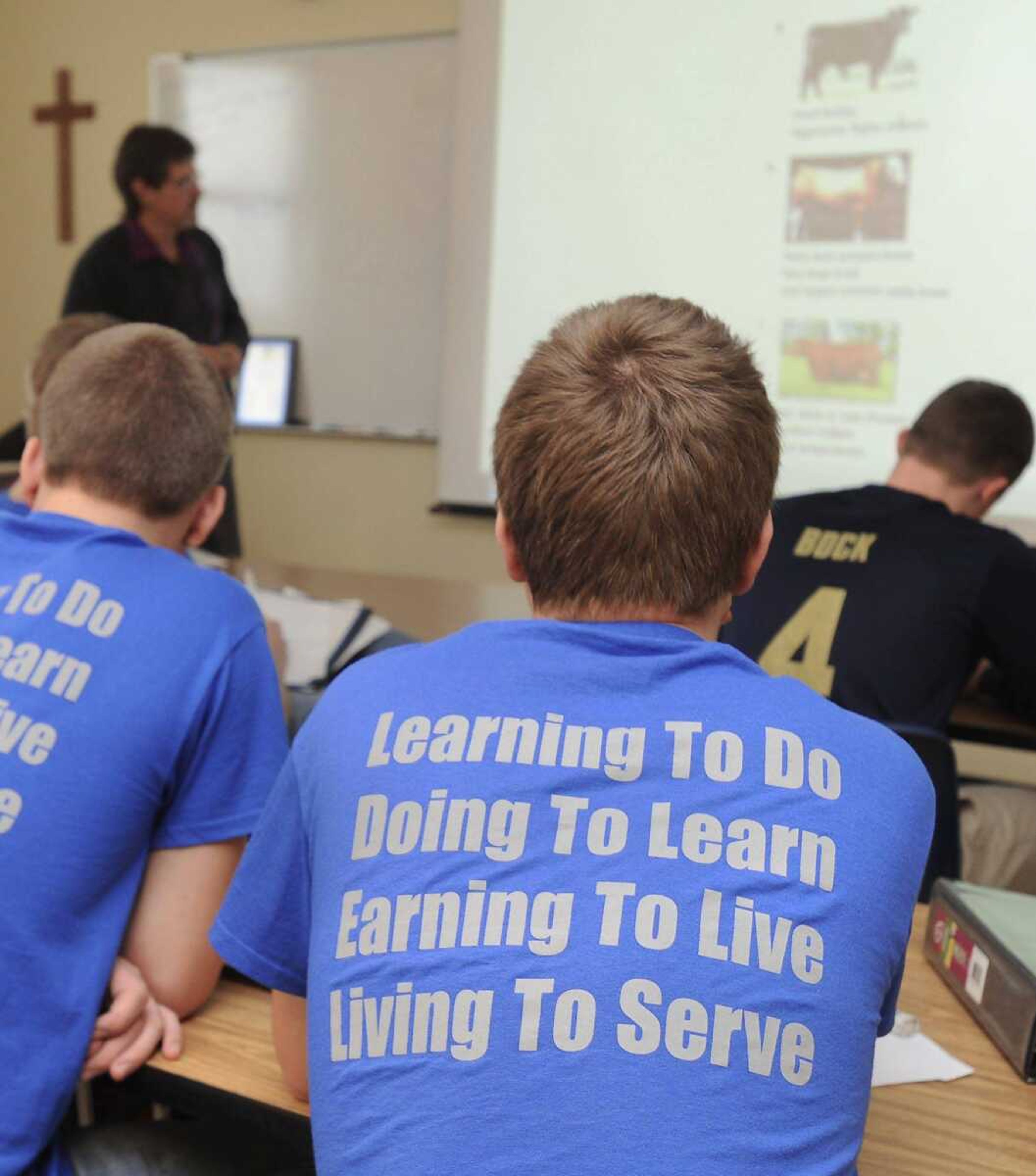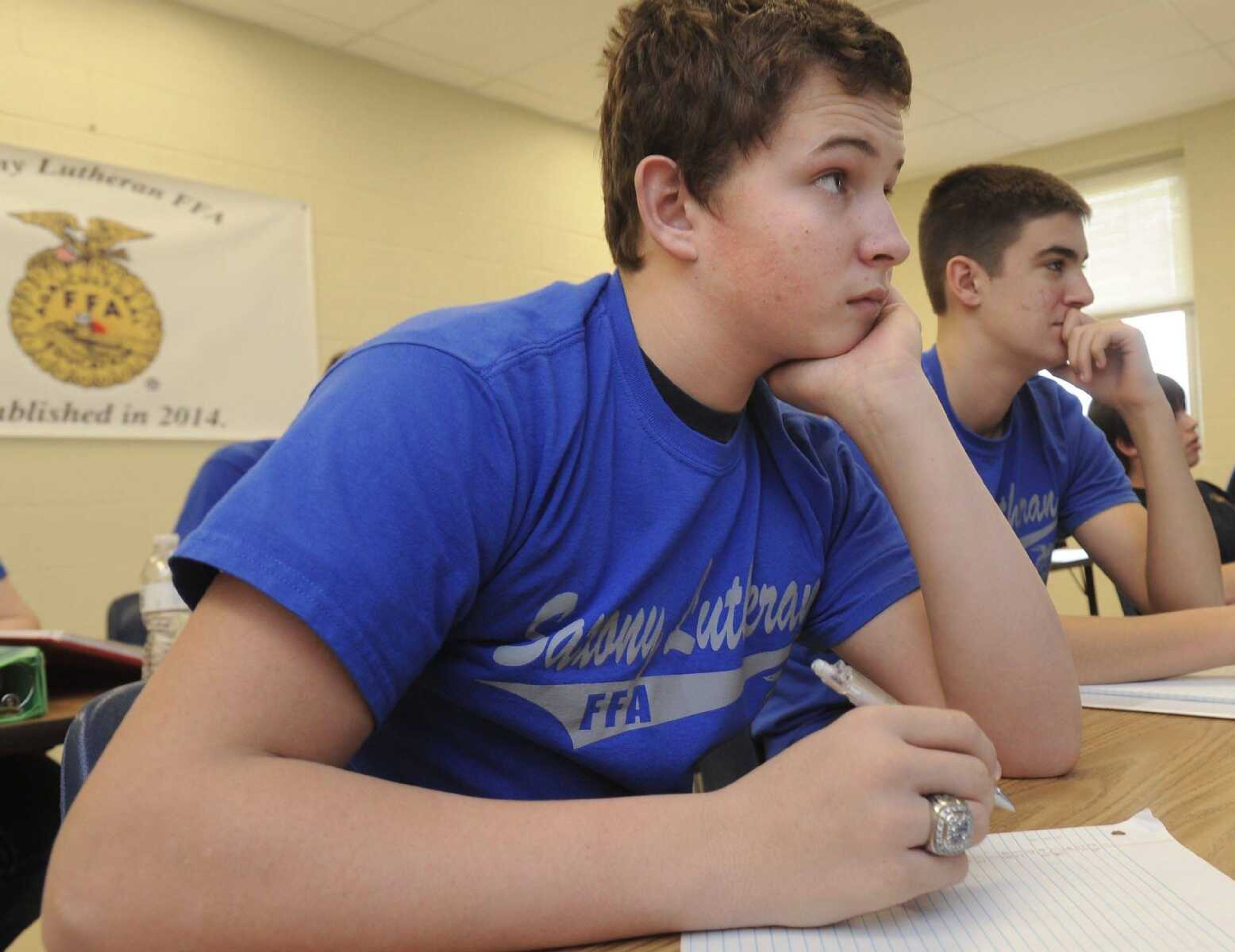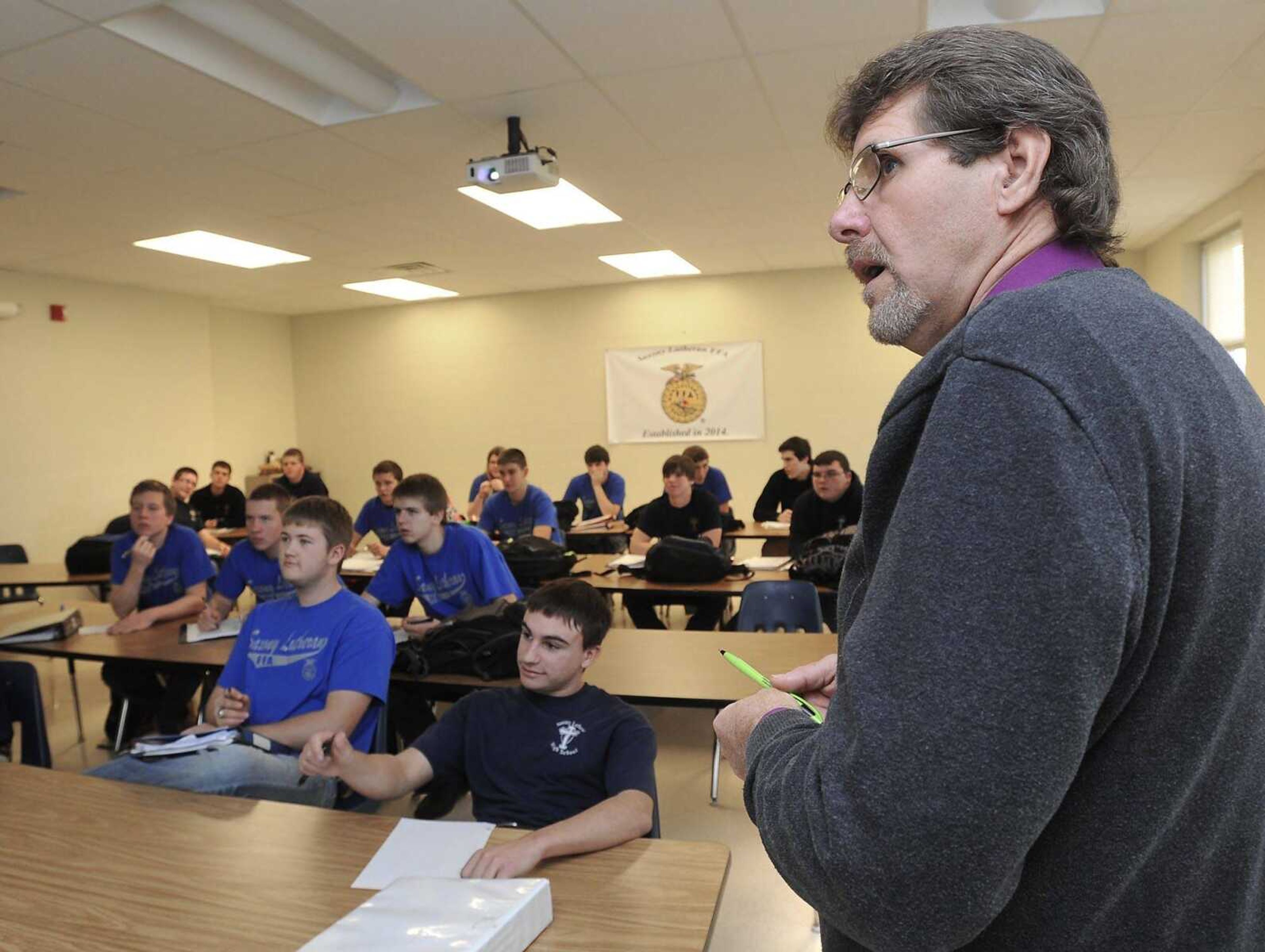Growing Minds: Saxony's agriculture program creates draw for potential students
Even educators at private schools are concerned about customer service these days, and when Mark Ruark, principal at Saxony Lutheran High School, learned that not having a science and agriculture program was a reason for potential students to choose another school, he set out to change that...
Even educators at private schools are concerned about customer service these days, and when Mark Ruark, principal at Saxony Lutheran High School, learned that not having a science and agriculture program was a reason for potential students to choose another school, he set out to change that.
"The top three [objections] we get is no football, transportation and no agriculture science program. Of the three issues, the one we felt like we could cost-efficiently solve right away was starting an FFA program."
The school applied through the Missouri Department of Elementary and Secondary Education, and was approved.
After the executive board at Saxony approved the measure, Ruark began looking for a teacher.
Danny McCrite, a once retired principal and teacher from Illinois, saw an ad in the Southeast Missourian for the position and decided to throw his hat in the ring.

With 23 years' experience teaching science and agriculture -- and five more as a principal before retiring from an Illinois public school -- McCrite was the perfect candidate for the position.
When the 2014-2015 academic school year began, so did the coursework outlined by the National FFA Organization. Every morning 21 students -- 20 boys and a girl -- meet and learn about science and agriculture in the new class.
The formal charter-signing ceremony took place Dec. 4, when Saxony became the first private school in the area to have an FFA program.
"We are officially an FFA chapter in the Missouri Association and the National FFA," McCrite said.
"We are very proud and excited about it," Ruark said.
Andrew Bohnert, a 16-year-old junior at Saxony, said the program is important to him.
"Now that we have it, it provides more opportunities for kids here," he said.
Bohnert's grandmother owns a farm that raises wheat, soybeans, corn and cattle.
FFA programs involve a lot more than just learning how to grow crops, McCrite explained.
"A lot of people think FFA and agriculture is just farming, and it's not," he said. "It's more science, computers and technology. There is public speaking. We [don't do] just livestock and crops. We do job-interview contests."

FFA provides students an opportunity for learning about careers in science and agriculture inside and outside the classroom.
During career-development events, students have the opportunity to compete against others in FFA programs at other schools on a local, state and national level.
"All of those events are so students can actually have hands-on practice, whether it's in the livestock industry or the marketing part of agriculture or communications or computer science and programming," McCrite said.
Students also study crop management and learn about investing in agriculture by choosing to participate in a program that involves mock trading of crop futures.
"Through the national FFA and the Chicago Board of Trade, they have a program where students can buy and sell, without really doing it," McCrite said. "They keep track of whether they make money or lose money in corn, soybeans, wheat and cattle."
During the first semester, McCrite said he had been teaching mostly about FFA history.
"I've been teaching them about what's involved in the FAA and what opportunities are available to them."
McCrite said there is so much to learn, during the first semester they had just begun to scratch the service, though they did touch on a few other subjects.
One of those was raising pigs, and how their ears are tagged, a topic Bohnert said he enjoyed, and he is eager to get information he'll use at his family's farm.
McCrite explained that the agriculture program has three parts: classroom teaching, FFA and the Supervised Agricultural Experience program.
"That's where students keep records on crops," he said. "They keep track of what they have done from planting to marketing. It's important for an agriculture student to have the training they are going to need once they get out on their own," he said.
The subject matter also is important for students who are not planning careers in agriculture.
"For a student that's not an agriculture student, I think it's important to know where their food comes from and where their clothes come from," McCrite said. "A lot of people just don't know."
Naturally, different students are interested in different aspects of the program, but all of them seem to be enjoying the class and have embraced the material presented.
"All 21 are very enthusiastic. When I ask them to do something, they are all over it," McCrite said.
Connect with the Southeast Missourian Newsroom:
For corrections to this story or other insights for the editor, click here. To submit a letter to the editor, click here. To learn about the Southeast Missourian’s AI Policy, click here.









